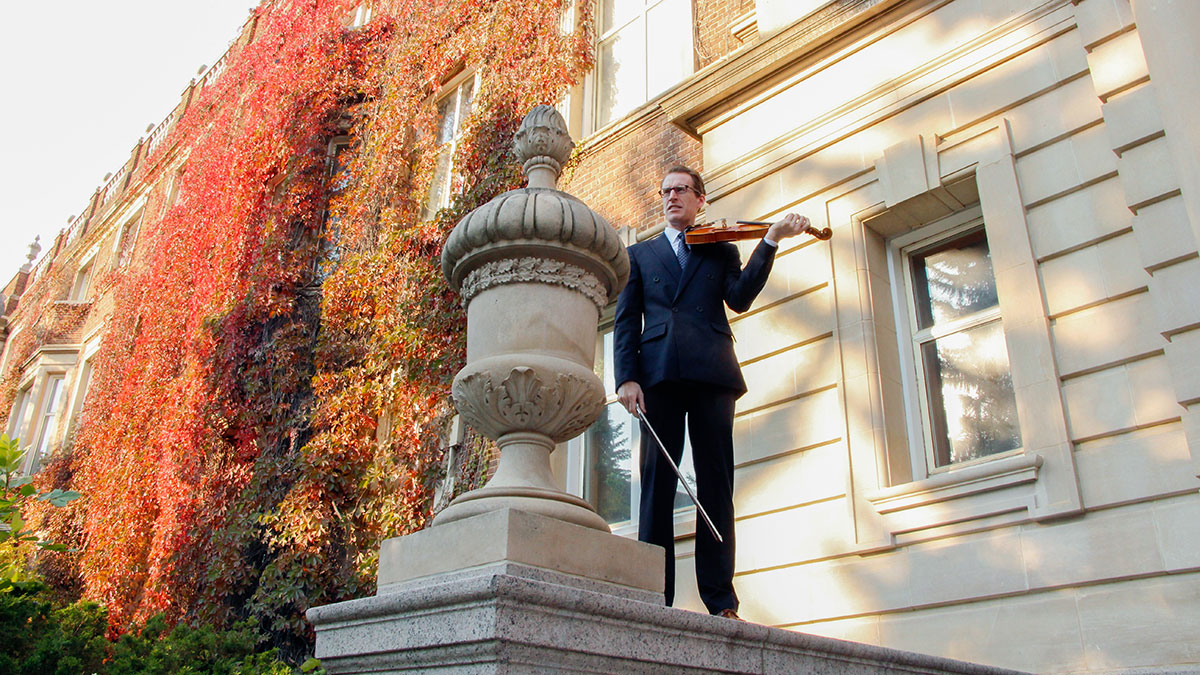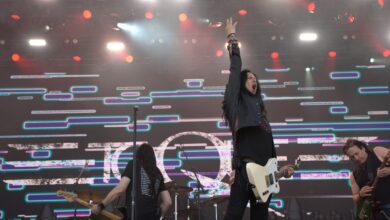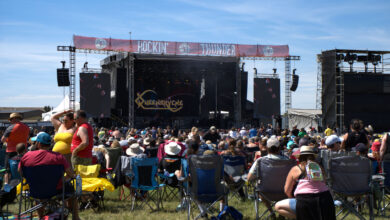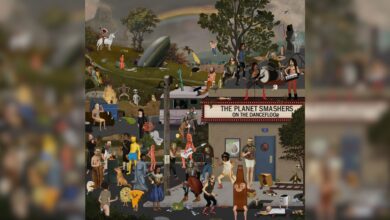Violinissimo returns to Convocation Hall
 Supplied – TJ Jans
Supplied – TJ JansViolinissimo II – Presented by the Department of Music
Performers: Guillaume Tardif (violin) and Roger Admiral (piano)
Date: Friday, Jan. 15th at 8:00 p.m.
Location: Convocation Hall
Price: $10 Student $20 Adult $15 Senior (Tickets available online at yeglive.ca and at the door 30 minutes prior to the performance)
This Friday at Convocation Hall, students will be given the opportunity to experience live classical music. For most students, this is a stretch from what usually appears on study playlists. However, violinist Guillaume Tardif speaks passionately of the connection created when an audience takes in classical live performance.
“Fortissimo is an extension of forte and pianissimo is an extension of piano, they are the extremes: this is Violinissimo, it is to bring attention to those extremes,” says Tardif.
Violinissimo II is the second installment of a concert set that Tardif has put together on the violin with Roger Admiral on the piano. Together they play arrangements of classical pieces that they have hand picked from the 19th Century to display the intricacies of the violin’s capabilities.
Tardif is a violin soloist who is well known in Edmonton for his involvement in the arts community and he was named one of Avenue Magazine’ “Top 40 under 40” back in 2012. He‘s written numerous violin arrangements himself, while his knowledge of music is fast, his research specifically focuses on the history of the violin. Tardif is heavily involved in the global music community, as he teaches master classes internationally, collaborates with many incredible musicians and adjudicates performances all over the world.
Tardif praises his partner Roger Admiral and his masterful ability to play incredible pieces on the piano; they have done several concerts together, including a performance at Carnegie Hall, and are excited to add another to their repertoire of shared concerts.
In Violinissimo II Tardif says, “a heroic violin will be presented” because of the strong technical aspects of 19th century violin music, from composers such as Wieniawski, Auer, Wilhelmj, and their contemporaries. Tardif explains the many evolutions of the instrument itself and how the music began to shift with the turn of the century. As he excitedly says that his inspirations are the violin heroes of whose works he will be performing.
“These guys have tremendous stage appeal and the reaction to their music was very strong,” says Tardif.
Tardif explains how learning the pieces stir up a desire to find out how the greats throughout history were able to perform powerfully and create responses by making it seem, as he explained it, like magic.
However, the current issue with many classical violinists is that they maintain the same few tunes that they play over and over. Tardif says that this causes people to wonder if there is anything more after that.
“I really take seriously this role at the university of asking questions and finding answers. And trying to make a contribution that’s outside of simply performing,” says Tardif.
He uses his programs to make a statement in regards to his thought process. Tardif says that he does not just play what people want to hear, but he presents pieces that cause audiences to notice what is valuable and original.
“I’m working on the story line right now for the program but you spend quite a bit of time selecting the pieces you want to play and putting them together like a nice menu, you go from the salt and pepper into the meat and then you have the soup. You need a musical flow that goes in between the courses.”
Continuing with his metaphor of a meal preparation, he hopes that people will enjoy a taste of something new that they may have never tried before. Being present at the concert makes an audience member a part of the musical meal they have compiled
“In the 19th century we didn’t have TV or movies with special effects so going to a virtuoso concert was like going to Cirque du Soleil. They were well-attended events but now it is difficult to gather a crowd without massive investments and publicity. There was an excitement there to see a violinist in action. Nowadays the standard has raised quite a bit,” says Tardif.
Despite the difficulties in gathering a large crowd, Tardif is confident that classical music will not die out because of the time that people invest towards it and because of the qualities it has that people continue to talk about.
The violinist places a strong emphasis on valuable moments and he explains his fear that we live in a dangerous culture where moments are easily lost due to the connection to the Internet and they will not be appreciated. But he fondly takes the time to mention the kind hearts of musicians because they understand this value of moments.
“A message that is important for us as a department to stay alive and to keep to keep the fire burning is to create events that value moments and if people miss the moment well too bad, but we warned them,” says Tardif.




